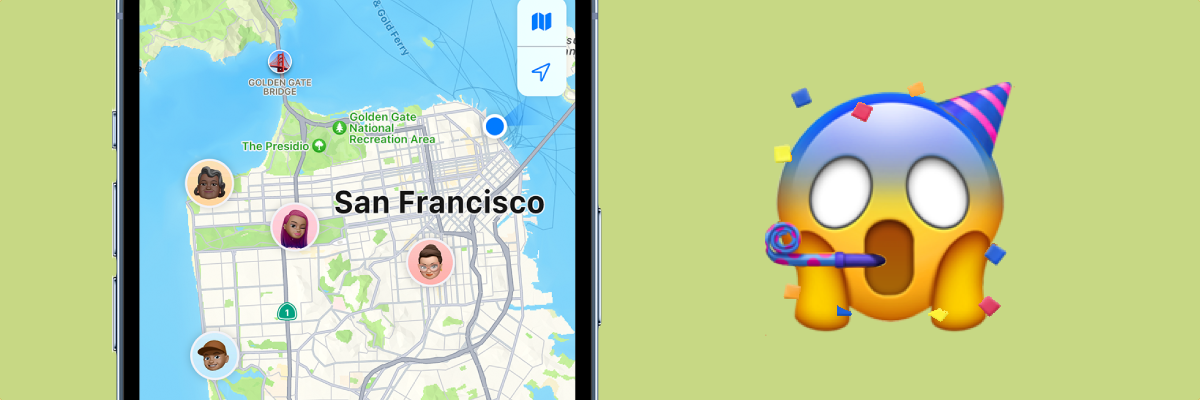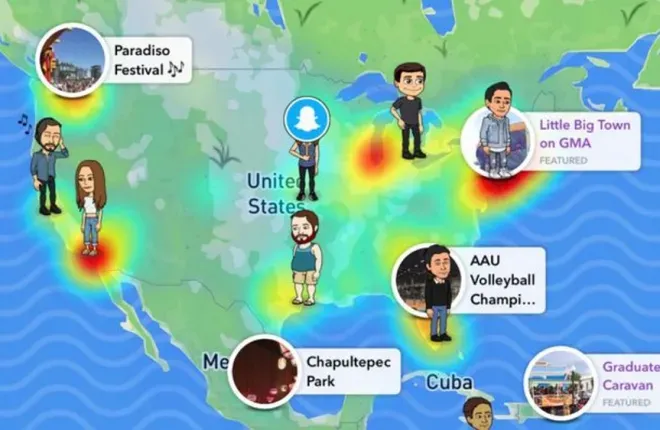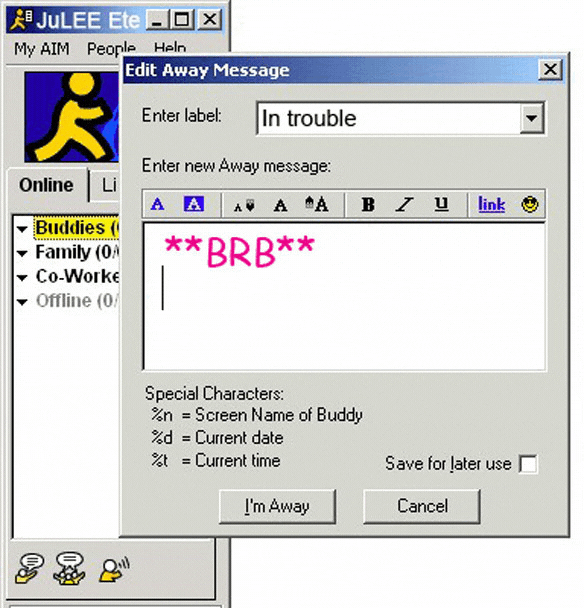One day you attended a surprise party and didn't know it would be your last
If widespread location sharing is to become the societal default, we're going to need more controls.

When did you last go to a surprise party? And how do I know it was for someone over the age of 60?
Location sharing continues to grow in popularity, with surprise parties and a general sense of personal privacy being the victims along the way.
If widespread location sharing is to become the societal default, we're going to need more controls.
Personally, I've never been a big fan of others knowing where I am at all times. The act of telling people where you are - via a social media post, group chat, or time-limited location share - fun! Permanently sharing? Less so.
But it's not like live location sharing doesn't have its benefits. Gen Z is often right about new tech, and according to a NYT poll from 2022, they love some map action:
69 percent of Gen Z and 77 percent of millennials said they activated location-sharing features at least sometimes, compared with 62 percent of U.S. adults in general, according to the Harris Poll.
Snapchat Maps (more commonly known as Snapmaps) are widespread and generally loved by users of Snapchat. It is fun and useful to see if your friends are nearby. It has reasonable controls for choosing who can and can't see where you are.

Apple is increasing the functionality and options in Find My, the built-in location sharing app on iOS. Slowly slowly, as forced adoption of any new feature is likely to put more people off than bring them onside.
Google killed its Find My alternative known as Trusted Contacts a few years back (feign shock here), but maintains a location sharing feature inside of Google Maps.
You can share location in most messaging apps, it's everywhere.
For women and any group at an increased risk of getting home safely at night, location sharing can have huge benefits. But lets make it a power feature, with more ways to manage expectations of those around us. Not just a blanket yes/no share to these people, or don't.
Normalise Not Sharing
Having only the option to show or hide location creates more uncertainty than is needed. Why can't I see this person's location that I could see before? Do they hate me? Are they safe?
Let's bring in status messages, which have served us well since the days of AIM and MSN.

Instead of just having your location turned off, you could have a specific location-off-status message:
- "away for a bit"
- "studying"
- "lots on, location not important"
- "secret mission"
- "no reason"
Combine this with groups (normal friends, VIPs, and VVIPs) so you can keep a few select people in your always-on list, but toggle everyone else as necessary. Make location sharing non-binary, is what I'm saying.
My only concern is this might bring back the surprise party; an event that I'm happy to leave in the previous century.